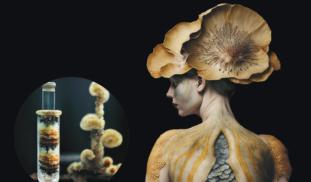Please wait...
About This Project
France and Europe's first agricultural region, Nouvelle Aquitaine, generates an excessive flux of lignocellulosic waste. Fortunately, this is one of mushroom's favoured food.
Our locally-led initiative of citizen-scientists will survey farms and industries, to identify knowledge about mushroom production as a waste management biotechnology.
We plan to experiment mushroom cultivation to suit local agro-industrial-based residues and aim to investigate competitivity with current waste practices.
More Lab Notes From This Project

Browse Other Projects on Experiment
Related Projects
How can white-rot fungi transform agro-industrial waste ?
France and Europe's first agricultural region, Nouvelle Aquitaine, generates an excessive flux of lignocellulosic...


